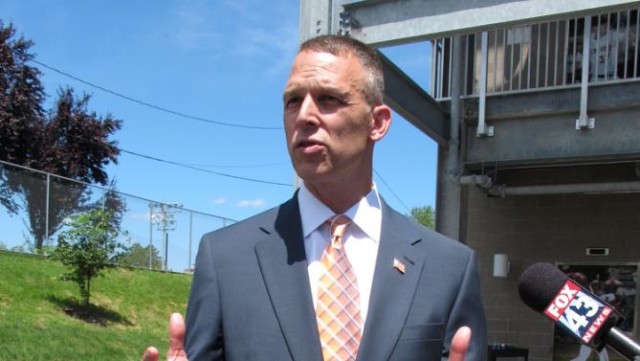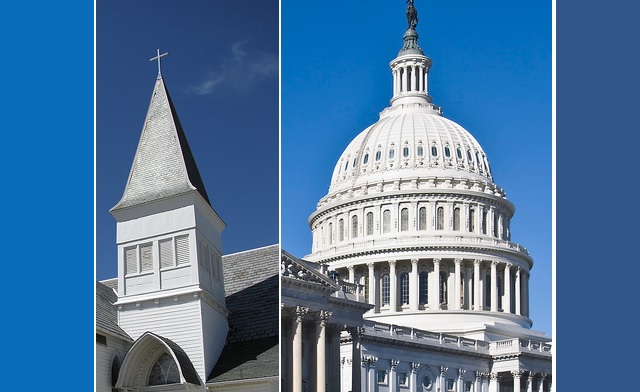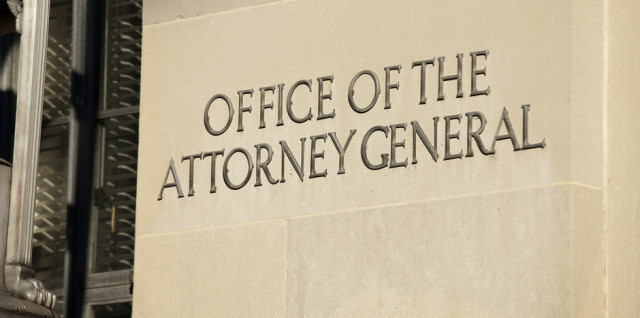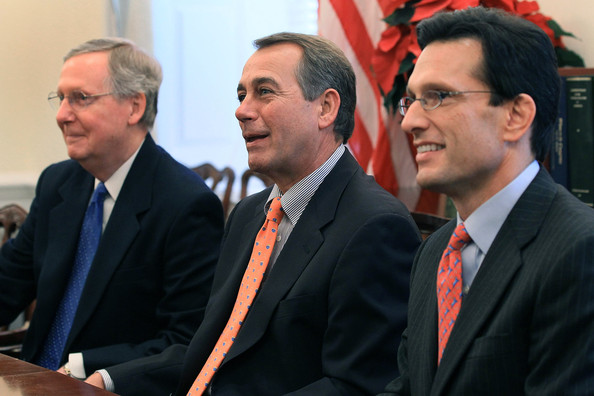What Can the Government Steal? Anything It Pays For! by Daniel Bier
“…Nor shall private property be taken for public use, without just compensation.” – Fifth Amendment to the U.S. Constitution
On Monday, I wrote about the Supreme Court’s decision in the case of Horne v. USDA, in which the Court ruled almost unanimously against the government’s attempt to confiscate a third of California raisin farmers’ crops without paying them a dime for it.
The confiscation was part of an absurd FDR-era program meant to increase the price of food crops by restricting the supply; the government would then sell or give away the raisins to foreign countries or other groups.
Overall, this ruling was a big win for property rights (or, at least, not the huge loss it could have been).
But there’s one issue that’s been overlooked here, and it relates to the Court’s previous decision in Kelo v. City of New London, the eminent domain case that also just turned 10 horrible years old yesterday.
In Horne, eight justices concluded that physically taking the farmers’ raisins and carting them away in trucks was, in fact, a “taking” under the Fifth Amendment that requires “just compensation.”
That sounds like common sense, but the Ninth Circuit Court of Appeals had ruled that the seizure wasn’t a taking that required compensation because, in their view, the Fifth Amendment gives less protection to “personal property” (i.e., stuff, like raisins or cars) than to “real property” (i.e., land).
The Court thankfully rejected this dangerous and illogical premise.
But while eight justices agreed on the basic question of the taking, only five agreed on the matter of just compensation.
The majority concluded that the government had to pay the farmers the current market value of the crops they wanted to take, which is standard procedure in a takings case (like when the government wants to take your home to build a road).
Justices Breyer (joined by Ginsburg and Kagan) wrote a partial dissent, arguing the federal government’s claim that the question of how much the farmers were owed should be sent back to the lower court to calculate what the farmers were owed.
Their curious reasoning was that, since the government was distorting the market and pushing up the market price of raisins, they should be able to subtract the value the farmers were getting from the artificially inflated price from the value of the raisins that were taken. The government argued that the farmers would actually end up getting more value than was taken from them, under this calculation.
Chief Justice Roberts, writing for the majority, derided this argument: “The best defense may be a good offense, but the Government cites no support for its hypothetical-based approach.”
But the most interesting part of this subplot came from Justice Thomas. Thomas fully agreed with Roberts’ majority opinion, but he wrote his own a one-page concurrence on the question of how to calculate “just compensation,” and it went right at the heart of Kelo.
In Kelo, a bare majority of the Court ruled that the government could seize people’s homes and give them to private developers, on the grounds that the government expected more taxes from the new development.
Marc Scribner explains how the Court managed to dilute the Fifth Amendment’s “public use” requirement into a “public purpose” excuse that allows the government to take property for almost any reason it can dream up.
Thomas’s concurrence disputes Breyer’s argument about calculating “just compensation” by pointing out that, had Kelo had been correctly decided, the government wouldn’t be allowed to take the farmers’ crops at all — even if it paid for them.
Thomas wrote (emphasis mine),
The Takings Clause prohibits the government from taking private property except “for public use,” even when it offers “just compensation.”
And quoting his dissent in Kelo:
That requirement, as originally understood, imposes a meaningful constraint on the power of the state — ”the government may take property only if it actually uses or gives the public a legal right to use the property.”
It is far from clear that the Raisin Administrative Committee’s conduct meets that standard. It takes the raisins of citizens and, among other things, gives them away or sells them to exporters, foreign importers, and foreign governments.
To the extent that the Committee is not taking the raisins “for public use,” having the Court of Appeals calculate “just compensation” in this case would be a fruitless exercise.
Unfortunately, Chief Justice Roberts is already writing as though the “public use” requirement was a dead letter, writing at one point in his opinion: “The Government correctly points out that a taking does not violate the Fifth Amendment unless there is no just compensation.”
But that isn’t true. A taking violates the Fifth Amendment, first and foremost, if it is not taken for “public use.” And confiscating raisins and giving them to foreign governments in order to keep the price of raisins in the United States artificially high does not, in any sane world, meet that standard.
What Thomas didn’t say, but clearly implied, was that the Court should have struck down the raisin-stealing scheme entirely, rather than just forcing the government pay for the crops it takes.
The Horne decision was good news, but it didn’t go far enough by actually imposing a meaningful limit on what counts as “public use.” The Court could have done that in this case, by overturning Kelo or at least adding somelimitations about what governments can lawfully take private property for.
Happily, Justice Thomas isn’t throwing in the towel on Kelo, and Justice Scalia has predicted that the decision will eventually be overturned.
So can the government still take your property for no good reason? Yes, for now. But at least they have to pay for it.
That’s not nothing. And for raisin farmers in California, it’s a whole lot.
Daniel Bier is the editor of Anything Peaceful. He writes on issues relating to science, civil liberties, and economic freedom.












 Alex Tabarrok
Alex Tabarrok 



 The resisting property owners tried to use the political process to prevent the takings. They managed to attract the support of a wide range of people in the community, including many on the political left who believed that it was wrong to forcibly expel people from their homes in order to promote commercial development.
The resisting property owners tried to use the political process to prevent the takings. They managed to attract the support of a wide range of people in the community, including many on the political left who believed that it was wrong to forcibly expel people from their homes in order to promote commercial development.




